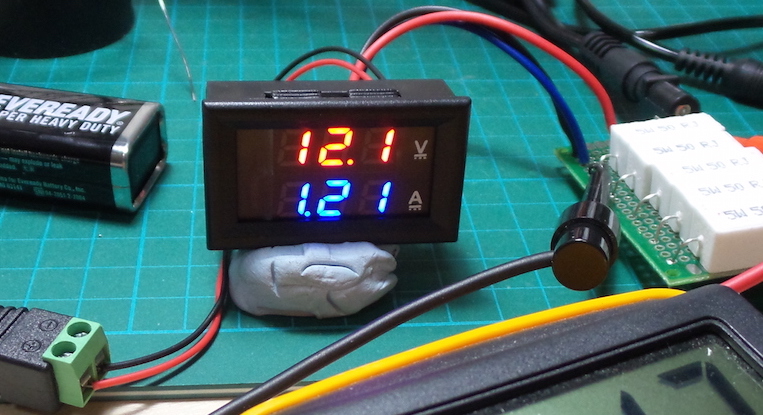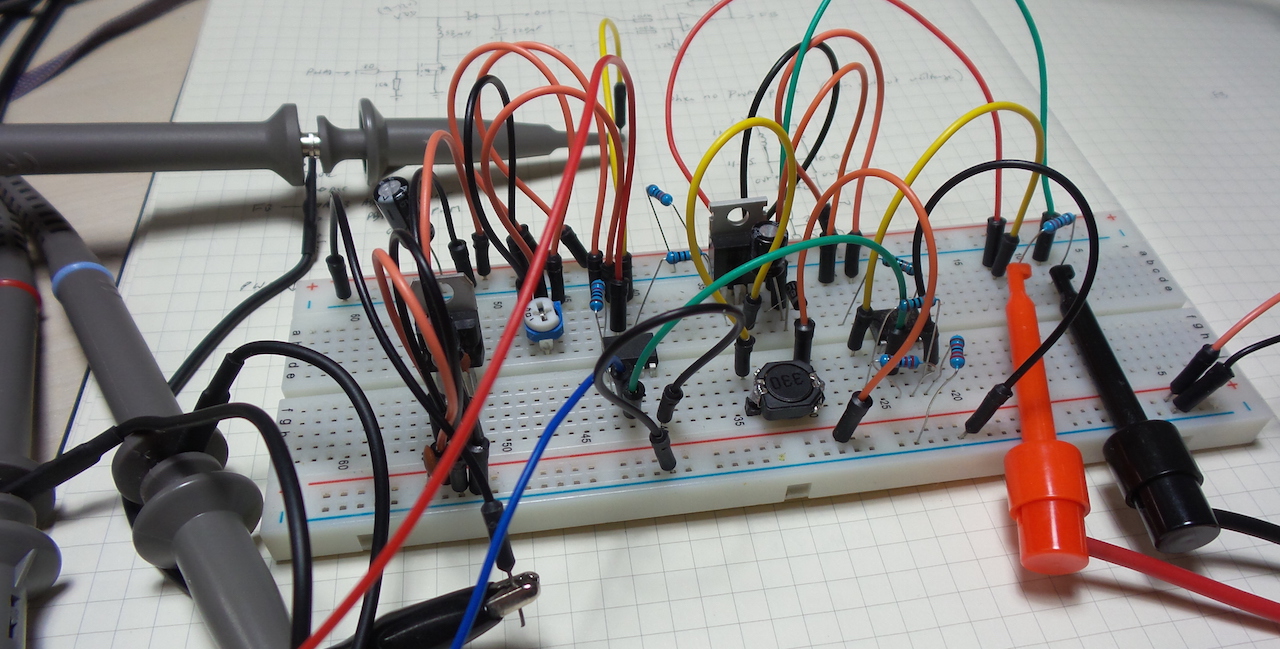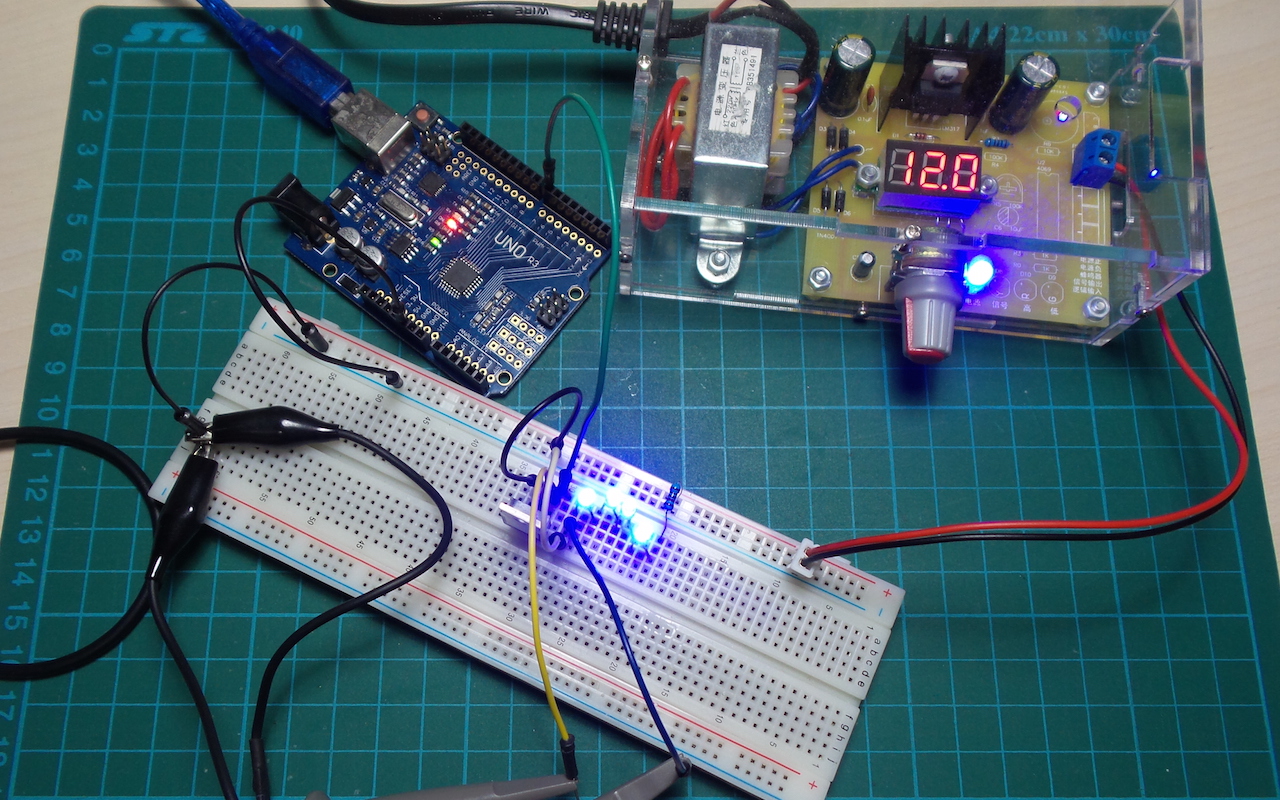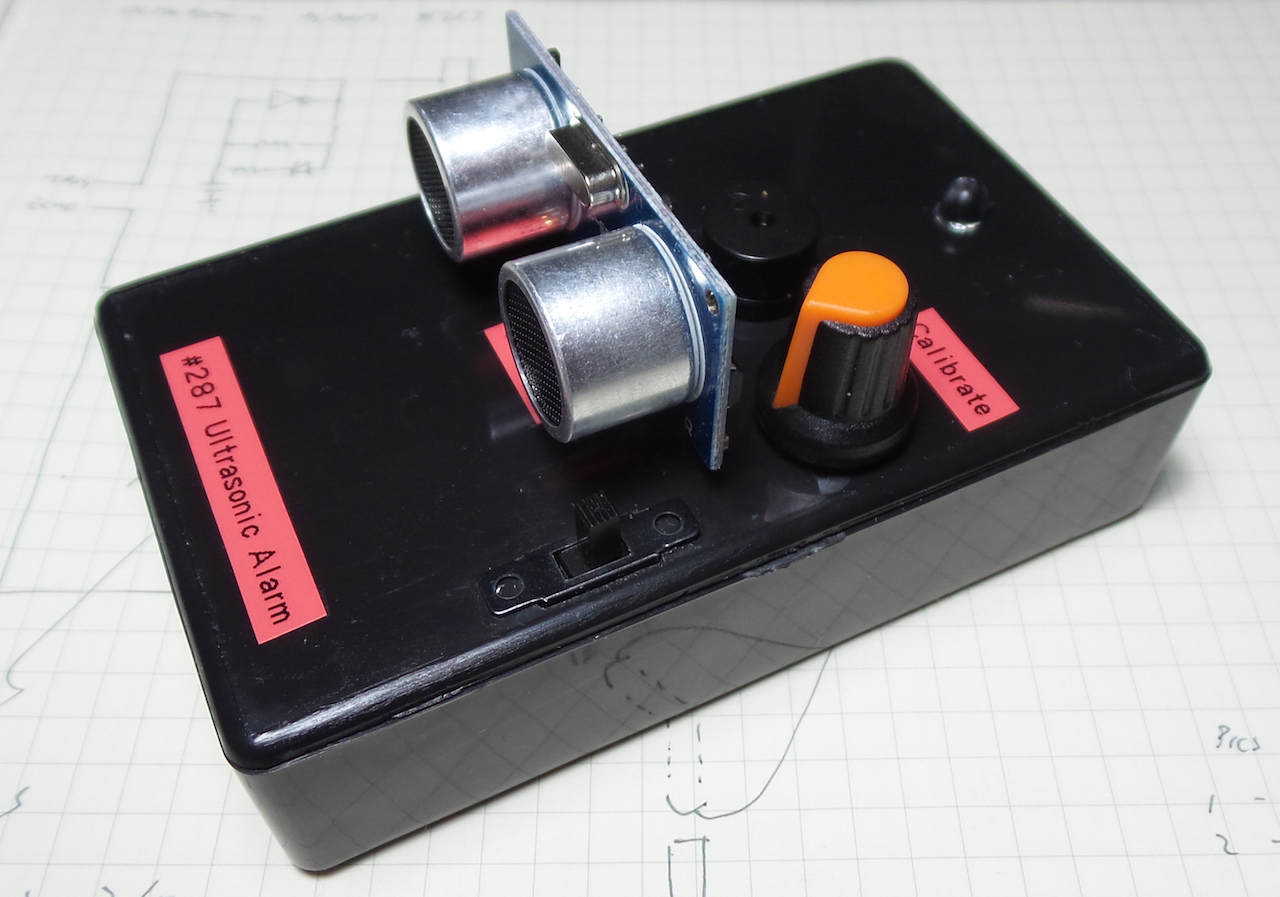LEAP#289 Voltmeter-Ammeter LED panel module
This combined voltmeter-ammeter panel-mount module is a decent unit if you don’t need more precision than ±0.1V/±0.01A.
It did take a bit of reverse-engineering and experimentation to get it calibrated, but once done the accuracy
stays true within 1% over the full range.
As always, all notes, schematics and code are in the Little Electronics & Arduino Projects repo on GitHub

read more and comment..
LEAP#288 Basic Inverting Buck Boost Avr Control
Testing a very basic inverting buck-boost converter controlled by an ATtiny85.
The basic inverting buck-boost circuit uses an inductor to build up an electromagnetic field during the switch-on period, and dump this energy into the capacitor during the switch-off period. The diode provides steering.
As always, all notes, schematics and code are in the Little Electronics & Arduino Projects repo on GitHub

read more and comment..
LEAP#287 Ultrasonic Alarm
The HC-SR04 Ultrasonic Ranging Module is commonly used with a microcontroller for obstacle detection and other autonomous control functions. But that doesn’t mean it can’t be used in circuits that lack a processor. Silicon Chip featured an article by Jim Rowe in the Dec-2016 edition that described Using An Ultrasonic Sensor Module As A Door Sentry, so I built something similar! As always, all notes, schematics and code are in the Little Electronics & Arduino Projects repo on GitHub
read more and comment..
LEAP#286 Low-side Power FET Switching
It’s a common question - how to switch high(er) voltage loads with a microcontroller that might only be running at 3.3 or 5V?
Someone asked me to demonstrate, so I cobbled together this example of low-side switching
with an n-channel enhancement mode MOSFET controlled by an Arduino running on 5V.
As always, all notes, schematics and code are in the Little Electronics & Arduino Projects repo on GitHub

read more and comment..
